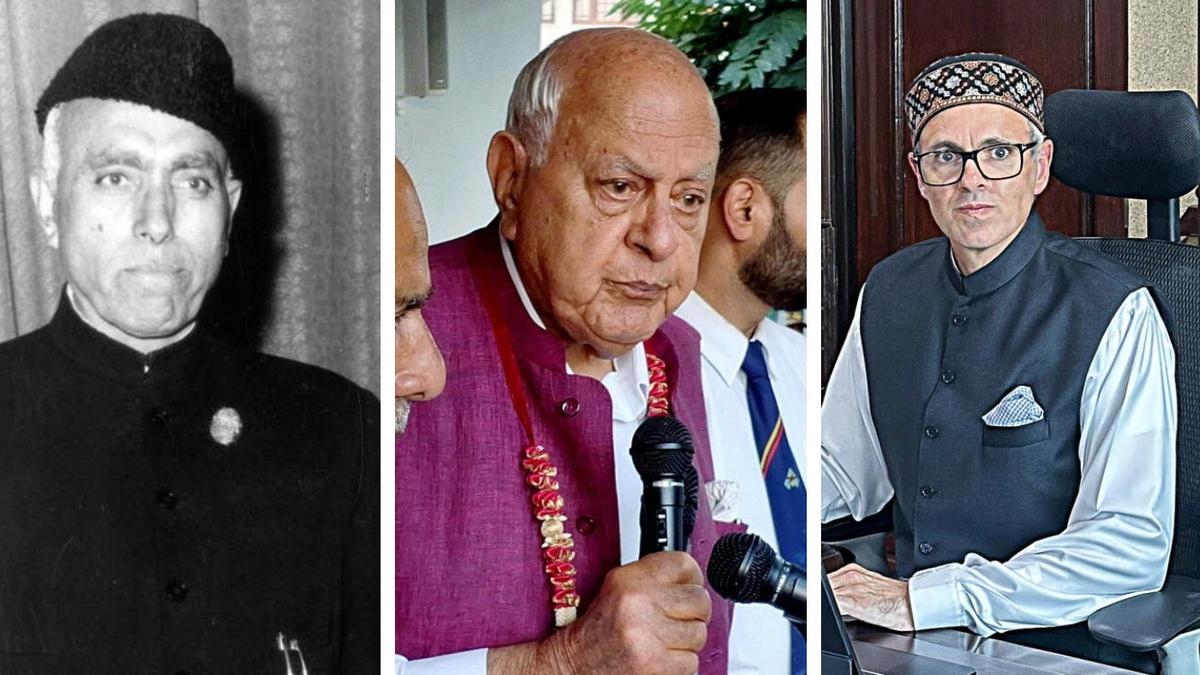 |
|
The Abdullah family has been a prominent force in the political landscape of Jammu and Kashmir for decades, with three generations of the family serving as Chief Ministers of the state. The article traces the political journey of Sheikh Abdullah, Farooq Abdullah, and Omar Abdullah, highlighting their contributions, challenges, and the enduring impact of their leadership on the region. The article also delves into the changing dynamics of Kashmir's political landscape, particularly in the aftermath of the revocation of Article 370 and the subsequent transformation of the state into a Union Territory.
Sheikh Abdullah, fondly known as 'Sher-e-Kashmir,' emerged as a prominent Muslim leader in the pre-independence era. He spearheaded a movement against the Maharaja's rule, advocating for self-rule and championing the cause of an undivided India. His unwavering commitment to the region's welfare and his efforts to dismantle the feudal system established him as a revered figure in Kashmiri politics. Despite periods of imprisonment and political turmoil, his legacy as a champion of Kashmiri autonomy and his role in shaping the state's relationship with India remain significant.
Farooq Abdullah, following in his father's footsteps, inherited the leadership of the National Conference (NC). His tenure as Chief Minister was marked by a complex mix of political alliances, internal party conflicts, and the rise of militancy in the Valley. He navigated the political complexities of the state, forging alliances with both Congress and the BJP. Despite controversies surrounding his policies and the challenges posed by separatist movements, he played a crucial role in shaping the state's politics in the 1980s and 1990s.
Omar Abdullah, the third generation of the family, entered politics at a young age and rose quickly through the ranks. He became the youngest Union Minister in the Atal Bihari Vajpayee government, and later became the state's youngest Chief Minister. His tenure was marked by economic growth, infrastructure development, and a focus on improving social indicators. However, he also faced challenges related to militancy, civilian unrest, and the 2014 floods. The revocation of Article 370 in 2019 led to his house arrest and a significant shift in the political landscape of Jammu and Kashmir.
The article concludes with an analysis of Omar Abdullah's current role as Chief Minister of the Union Territory, highlighting the challenges he faces in the post-Article 370 era. The re-demarcation of constituencies, changes in reservation policies, and the increasing influence of the BJP in Jammu pose significant obstacles for his leadership. The article emphasizes that the Abdullahs' legacy in Kashmir remains intertwined with the region's complex political history, and their future remains uncertain amidst the ongoing political transformations in the Valley.
Source: Abdullahs rule Kashmir: A look at three generation of CMs in the Valley
